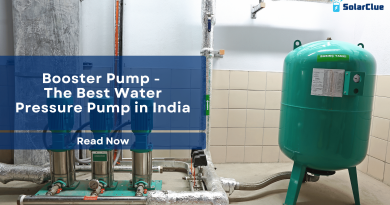What is the best way to reduce air pollution?
Air pollution is a pressing environmental issue that affects us all. So we should all try and reduce air pollution. This would be beneficial for us and for the generations to come.
As individuals, we must take action to reduce our carbon footprint and minimize air pollution. In this blog, we will discuss how can we reduce air pollution.
Table of Contents
- 1 What is air pollution definition?
What is air pollution definition?
Air pollution refers to the presence of harmful substances in the atmosphere, such as particulate matter, nitrogen oxides, sulfur dioxide, and carbon monoxide. These pollutants can originate from various sources and have detrimental effects on human health, ecosystems, and the overall quality of life. Respiratory illnesses, cardiovascular diseases, and environmental degradation are just a few consequences of unchecked air pollution.
What are the sources of air pollution?
- Vehicular emissions: Exhaust fumes from cars, trucks, and buses release harmful gases like carbon monoxide, nitrogen oxides, and particulate matter into the air.
- Industrial activities: Manufacturing processes, power plants, and construction sites are major contributors to air pollution, releasing various pollutants.
- Electricity generation: The burning of fossil fuels like coal and natural gas for electricity production releases significant amounts of harmful emissions.
- Residential activities: Heating and cooling systems, as well as household appliances that run on electricity or gas, contribute to air pollution.
- Agricultural activities: Certain farming practices, such as the use of fertilizers and pesticides, can release pollutants into the air.
All the above sources contribute to air pollution. But how can air pollution be reduced by individuals? The answer is by making changes in the appliances we use on a daily basis. In this blog, we will talk about one such appliance.
How can air pollution be reduced?
There are many electric devices we use to fulfill out daily needs. One such daily need is hot water. In most Indian homes, a geyser is used. But do you know a geyser consumes a lot of electricity. This electricity is produced by burning fossil fuels like coal. When these are burnt, there are emission of harmful pollutants. This result in air pollution.
The solution to this problem is a heat pump. It uses less electricity, as it uses heat from the surrounding air.
What is a heat pump and how does it work?
A heat pump is a water heating appliance, just like a geyser. But the way it works makes all the difference. Heat Pump works on the principle of transferring heat from one place to another. It consumes heat from the surrounding air. This heat is used to produce hot water. It consists of three main components: an exhaust fan, a compressor, and a storage tank.
- The exhaust fan draws in air from the surrounding environment.
- The compressor compresses and transfers the heat from the air to the refrigerant.
- The heated refrigerant then passes through a heat exchanger, transferring its heat to the water in the storage tank.
This process is highly efficient as it uses electricity primarily to power the compressor and fan, rather than generating heat directly. As a result, heat pump water heaters consume significantly less electricity than traditional electric water heaters, thereby reducing the associated air pollution.
How can a heat pump help reduce electricity consumption at home?

Instead of using electricity to create heat, it uses electricity to transfer heat from one place to another. This requires lot less electricity consumption.
Heat pump systems consume up to 75% less electricity than geysers. This reduces your household’s energy consumption and carbon footprint. By consuming less electricity, heat pump water heaters indirectly contribute to reducing air pollution caused by power generation from fossil fuels.
What are the other benefits of a heat pump water heater system?
In addition to reducing air pollution, heat pump water heaters offer several other benefits:
1. Cost-effective
Heat pump water heaters are highly cost-effective in the long run. Although the initial investment may be higher than traditional water heaters, the ongoing operational costs are significantly lower. These systems consume up to 75% less energy than conventional electric water heaters, resulting in substantial savings on electricity bills. Over the lifetime of the system, which can span 10-15 years, the energy savings can offset the higher upfront cost, making heat pump water heaters a more economical choice.
2. Long lifespan
Heat pump water heaters are designed to last longer than traditional water heaters. With proper maintenance, they can have a lifespan of up to 15 years or more, compared to 8-12 years for conventional electric or gas water heaters. This extended lifespan means you won’t have to replace your water heater as frequently, saving you money on replacement costs and reducing waste.
3. Reduced water wastage
These systems are highly efficient at transferring heat to the water, minimizing the need for constant reheating. Traditional water heaters often waste energy by continuously heating and reheating the same water. Heat pump water heaters, on the other hand, maintain the water at a consistent temperature, reducing the amount of energy required and minimizing water wastage.
4. Positive environmental impact
By consuming significantly less electricity than conventional water heaters, heat pump water heaters have a lower carbon footprint and contribute to reducing greenhouse gas emissions. This positive environmental impact is achieved by relying on renewable energy sources (ambient air) and minimizing the use of fossil fuels for power generation. Additionally, the longer lifespan of these systems further reduces the environmental impact associated with manufacturing and disposing of water heaters.
5. Efficient in cold climates
Advanced heat pump technology has made these systems highly efficient even in colder regions. Modern heat pump water heaters can extract heat from the air even when the temperature drops below freezing. They are equipped with advanced compressors and refrigerants that allow them to operate effectively in a wide range of climatic conditions, making them a viable option for households in various geographical locations.
Conclusion
Rise in air pollution gives rise to risk of heath problems. It also creates problems for the future. It is very important that we create a sustainable future, for which, we must look ways to reduce air pollution. One of ways of doing that is installing a heat pump to meet your hot water needs. This will reduce the electricity consumption.
Visit SolarClue® to see the best heat pump water heaters. SolarClue® is an online marketplace where solar energy products are sold at discounts up to 50%.




